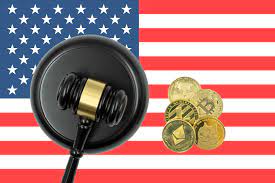“It’s Time for Real-Time Settlement” Robinhood CEO and co-founder Vlad Tenev

When it comes to trading platforms, Robinhood is a very commonplace and well known name. Coming to the trading scene in 2013, co founders Baiju Bhatt and Vladimer Tenev set out to bring the opportunity, knowledge and benefit of the stock market and current financial system to the hands of both the rich and poor alike with no commissions and very user friendly technology; hence the name Robinhood. Being the “democratized” financial system they set out to be, they introduced cryptocurrency into their platform in 2018 under the Robinhood Crypto LLC, an entity separate from Robinhood Financial LLC, but both are subsidiaries under Robinhood Markets, Inc.
Robinhood has indeed made it easy for anyone to participate in the trading game. They’ve given users a very simple to use app full of news, educational resources and financial tools. They’ve definitely made a massive impact in the lives of many individuals who were new to trading. Although well intended, and very sincere in their mission to bring financial freedom to the average Joe, Robinhood faces challenges as a crypto platform dealing in the stock market: they are not decentralized. The rules and regulations of WallStreet have a firm grip on most any entity which participates in the oversight of stock trading, and these mandates inhibit the fullness of financial freedom to be brought to the individual. An example of the impact of these centralized systems can be seen in the Gamestop Short Frenzy, where certain trading platforms, including Robinhood, were seeing halts and hindrances when trading certain stocks.
When it comes to cryptocurrency, Decentralized Currency, Robinhood does offer the trading thereof, yet they are the ones who have control of the currency, until you cash out that is. When a cryptocurrency is bought, it should be able to be stored in a wallet, a highly encrypted wallet, and should be able to be sent from one wallet to another at some capacity outside of the realm of fiat currency; whoever holds the coins owns them. Meaning that this platform only allows for the withdrawal of dollars and not any digital asset which one puts money into. In other words, Robinhood is not a legit cryptowallet.
In conclusion: Robinhood has done a great deal in bringing the financial world to all who seek to participate in it and have made trading and learning about these things rather simple and easy. They too, show support for crypto: by offering the trading of it, whilst being one of the largest holders of Dogecoin, also by expressing a desire to see it fix current problems in the system we have now. However, they are a centralized entity, both in stock trading and in the holding of crypto assets, which is contrary to both DeFi and the “democratizing” of finance as the founders intended. Robinhood may be an easy way to start, but in the realm of BlockChain, it’s far from adequate. Our suggestion would be to put your money elsewhere if you’re looking to trade and exchange.




